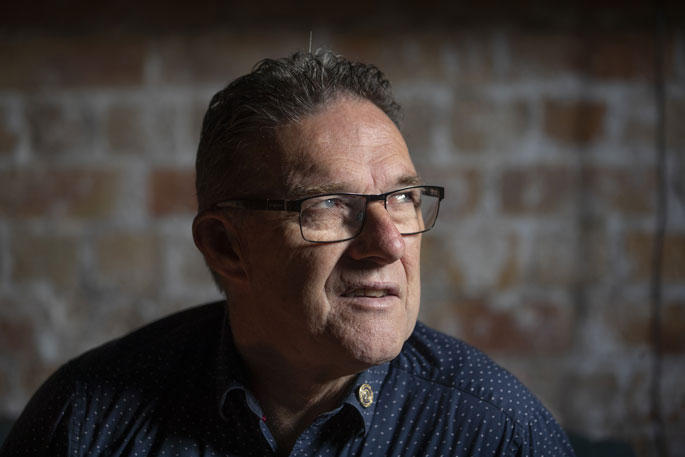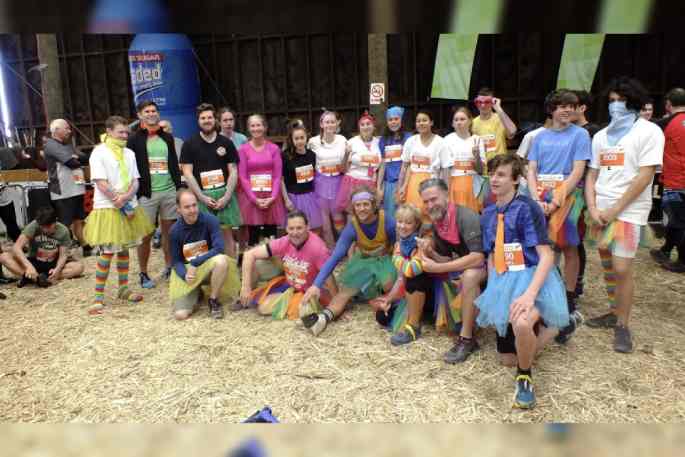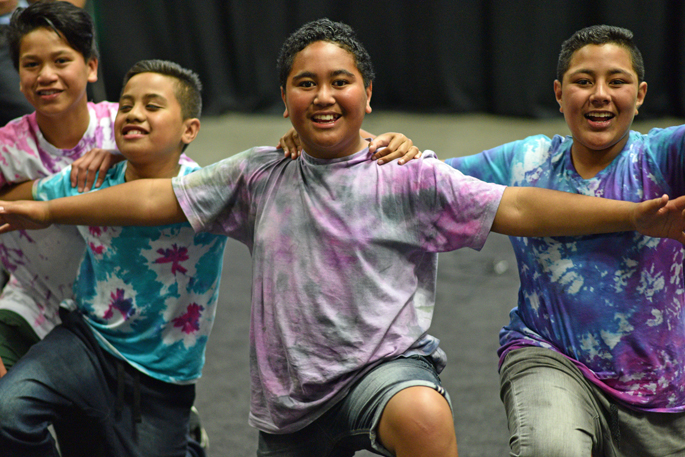In a new study, the Graeme Dingle Foundation has found its programmes to have a staggering $10.50 return for every dollar invested.
The study, undertaken by leading New Zealand economic consultancy firm Infometrics, is a tool which quantifies the social and financial benefits of the charity’s suite of programmes using economic calculations which represent both value and cost to society.
The Graeme Dingle Foundation is a youth development charity named in recognition of Kiwi adventurer and personality Sir Graeme Dingle who founded the not-for-profit organisation with his partner Jo-anne Wilkinson in 1995.
Sir Graeme and Lady Dingle have a vision to improve New Zealand's negative youth statistics and have helped over 350,000 young Kiwis be more confident, find purpose and direction, and achieve success.
 Dan Allen-Gordon, who is BOP regional manager for the Graeme Dingle Foundation, works to reduce at-risk behaviours – such as truancy, bullying, suicidal ideation and other risks – for young people to succeed. Photo: John Borren/SunLive.
Dan Allen-Gordon, who is BOP regional manager for the Graeme Dingle Foundation, works to reduce at-risk behaviours – such as truancy, bullying, suicidal ideation and other risks – for young people to succeed. Photo: John Borren/SunLive.
The foundation facilitates school and community programmes for nearly 30,000 Kiwis aged between 5–24 each year. These initiatives aim to broaden horizons, offer opportunities, and give young people the chance to become the next generation of successful parents, leaders, and businesspeople.
With a 30-year history, the foundation’s programmes have long made an impact on youth, enhancing wellbeing, engagement, and commitment to society through increased aspirations, positive trajectories, and pipelines to the workforce - ultimately benefiting our country’s economy long-term.
“Traditionally, measuring the economic benefit of our programmes has been difficult, as programme outcomes can span a lifetime for participants," says Graeme Dingle Foundation CEO Jo Malcolm- Black.
"However, understanding our impact through the support of Infometrics means that we can identify the true economic benefits and contributions they make to society showing just how critical this work is for our country long-term."
 The Graeme Dingle Foundation Western Bay of Plenty reaches more than 3800 youth each week through their proven programmes Kiwi Can, Stars, Career Navigator and Project K – helping young people to build confidence, tackle life's challenges and build bright futures. Photo: Supplied.
The Graeme Dingle Foundation Western Bay of Plenty reaches more than 3800 youth each week through their proven programmes Kiwi Can, Stars, Career Navigator and Project K – helping young people to build confidence, tackle life's challenges and build bright futures. Photo: Supplied.
The results, derived from the link between education and earnings plus a productivity spillover, capture the different ways that the presence of a better educated population can improve national wellbeing.
“We are thrilled to know there is a substantial return from our programmes. When we speak to funding partners such as Government, corporates and trusts we need to be able to show them a return on their investment.
"Now, we have another key figure to help tell our story which shows a tangible return for their contributions and reporting,” says Jo.
“With a return of $10.50 for every dollar invested, supporters of the foundation and its programmes know that, for example, for $100,000 invested, their organisation is providing over $1,000,000 return to New Zealand’s economy.”
Jo says these results are a direct reflection of the Graeme Dingle Foundation’s strong research and development commitments which ensure that, with the changing landscape of our country, their programmes adapt to reflect the greatest needs of young people.
“We are incredibly proud of this, and the impact it demonstrates for the nearly 30,000 young people who benefit from our programmes each year.”
Read the full 2024 Infometrics Report here.
For more information visit www.dinglefoundation.org.nz



1 comment
I can't emphasize enough...
Posted on 17-04-2024 13:19 | By morepork
... the fantastic work these people do. I know from first hand involvement that the kids love the programs and they are making real change at the base level which I often advocate here. I believe that the Dingle methodology and approach should be government subsidized so it can be easily expanded. It is non-denominational, common sense, and based on what the kids actually need, presented through activities and stories that get excellent buy-in. A Principal I spoke with said that instances of bullying in their school fell by 80% after the program was implemented. Dan Allen-Brown (who should be canonized :-)) works tirelessly with only donated resources, to keep the program running in schools and to expand it where possible. Volunteers make it possible and it really should not be THAT fragile. If you're looking for a charity to support: seriously consider Dingle Foundation and Dan.
Leave a Comment
You must be logged in to make a comment.